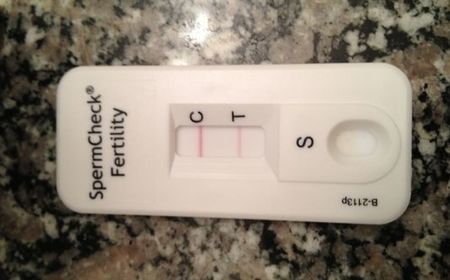Psychological stress is harmful to sperm and semen quality, affecting its concentration, appearance, and ability to fertilize an egg, according to a study led by researchers Columbia University’s Mailman School of Public Health and Rutgers School of Public Health. Results are published online in the journal Fertility and Sterility.
According to the American Society for Reproductive Medicine, infertility affects men and women equally, and semen quality is a key indicator of male fertility.
“Men who feel stressed are more likely to have lower concentrations of sperm in their ejaculate, and the sperm they have are more likely to be misshapen or have impaired motility,” says senior author Pam Factor-Litvak, PhD, associate professor of Epidemiology at the Mailman School of Public Health. “These deficits could be associated with fertility problems.”
The researchers studied 193 men, ages 38 to 49, enrolled in the Study of the Environment and Reproduction at the Kaiser Foundation Health Plan in Oakland, California, between 2005 and 2008. The men completed tests to measure work and life stress on subjective scale (how they felt overall) and objective scale (life events behind the stress). They also provided semen samples. Technicians at the University of California, Davis, used standard methods employed in fertility testing to assess the samples for semen concentration, and sperm appearance and motility.
Measured subjectively or objectively, life stress degraded semen quality, even after accounting for men’s concerns about their fertility, their history of reproductive health problems, or their other health issues. Workplace stress was not a factor, however the researchers say it may still affect reproductive health since men with job strain had diminished levels of testosterone. Being without a job did not improve matters. Unemployed men had sperm of lower quality than employed men, regardless of how stressed they were.
It is not fully understood how stress affects semen quality. It may trigger the release of steroid hormones called glucocorticoids, which in turn could blunt levels of testosterone and sperm production. Another possibility is oxidative stress, which has been shown to affect semen quality and fertility.
“Stress has long been identified as having an influence on health. Our research suggests that men’s reproductive health may also be affected by their social environment,” says Teresa Janevic, PhD, the study’s first author and an assistant professor at the Rutgers School of Public Health.
While several previous studies have examined the link between stress and semen quality, the current paper is the first to look at subjective and objective measures of stress and find associations with semen concentration, and sperm appearance and motility.
Source: science daily








 More than one-third of U.S. twins, and more than three-quarters of triplets and other multiple births, are now born as a result of fertility treatments, according to estimates from a new study.
More than one-third of U.S. twins, and more than three-quarters of triplets and other multiple births, are now born as a result of fertility treatments, according to estimates from a new study.